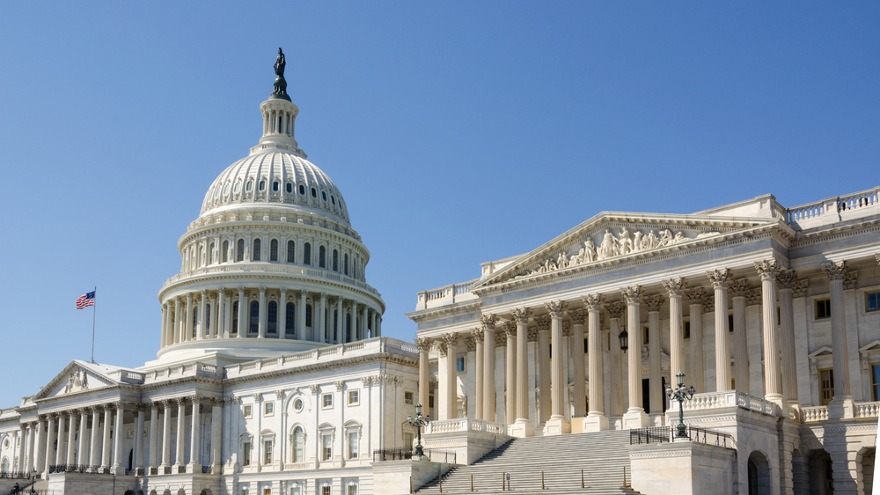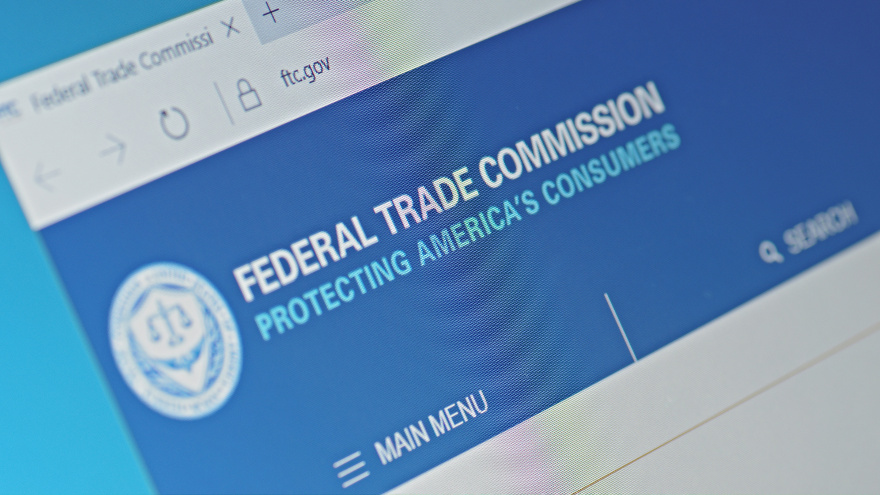National Automobile Dealers Association chairman Charlie Gilchrist recently wrote about how data and digital issues remain a high priority for the organization.
And it appears those topics certainly are being monitored by the Federal Trade Commission, too.
Early this week, the regulator announced an Iowa company that sells software and data services to dealers has agreed to take steps to better protect the data it collects, to settle allegations that the firm’s poor data security practices led to a breach that exposed the personal information of millions of consumers.
In a complaint, the FTC alleges that LightYear Dealer Technologies (doing business as DealerBuilt) failed to implement readily available and low-cost measures to protect personal information it obtained from its dealer clients.
“Today’s announcement reflects additional and significant improvements to the FTC’s data security orders that will further protect consumers and deter lax security practices,” FTC chairman Joe Simons said in a news release.
“The settlement with DealerBuilt imposes more specific security requirements and requires company executives to take more responsibility for order compliance, while also strengthening the third-party assessor’s accountability and providing the FTC with additional tools for oversight,” Simons continued.
Officials recapped that DealerBuilt develops and sells dealer-management system software and data processing services to dealers across the country. The software collects large quantities of personal information about dealership consumers, including names, addresses, birth dates and Social Security numbers. Its payroll software collects similar information from dealership employees, along with bank account information.
The FTC alleged that the personal data DealerBuilt collected was stored and transmitted in clear text, without any access controls or authentication protections.
According to the FTC’s complaint, a DealerBuilt employee connected a storage device to the company’s backup network without ensuring that it was securely configured, leaving an insecure connection for 18 months.
The company never performed any vulnerability scanning, penetration testing or other measures that would have detected the vulnerability, according to the complaint.
The FTC also alleged that DealerBuilt failed to take other steps to protect personal data stored on its network such as developing, implementing or maintaining a written information security policy and training for employees; using security measures to monitor its systems and assets; and imposing reasonable data access controls.
The regulator went on to allege these failures led to a breach of DealerBuilt’s backup database beginning in late October 2016 over a 10-day period, when a hacker gained access to the unencrypted personal information of about 12.5 million consumers stored by 130 DealerBuilt customers. The hacker downloaded the personal information of more than 69,000 consumers, including their Social Security numbers, driver’s license numbers and birthdates, as well as wage and financial information.
Officials pointed out DealerBuilt did not detect the breach until it was notified by one of its dealer customers, who demanded to know why its customer data was publicly available on the Internet, according to the complaint. The types of personal information stolen from DealerBuilt — names, addresses and Social Security numbers — are often used to commit identity theft and fraud, the complaint noted.
The FTC alleged that DealerBuilt violated the FTC Act’s prohibition against unfair practices and the Gramm-Leach-Bliley Act’s Safeguards Rule, which requires financial institutions to develop, implement and maintain a comprehensive information security program.
As part of the proposed settlement with the FTC, DealerBuilt is prohibited from transferring, selling, sharing, collecting, maintaining or storing personal information unless it implements and maintains a comprehensive information security program designed to protect the personal information it collects.
Among other things, the order requires DealerBuilt to implement specific safeguards that address the allegations in the FTC complaint.
The proposed settlement also requires the company to obtain third-party assessments of its information security program every two years. Under the order, the assessor must specify the evidence that supports its conclusions and conduct independent sampling, employee interviews, and document review.
In addition, the order requires a senior corporate manager responsible for overseeing DealerBuilt’s information security program to certify compliance with the order every year. Finally, the order grants the Commission the authority to approve the assessor for each two-year assessment period.
The FTC vote to issue the proposed administrative complaint and to accept the consent agreement with DealerBuilt was 5-0.
The regulator reiterated that it issues an administrative complaint when it has “reason to believe” that the law has been or is being violated, and it appears to the FTC that a proceeding is in the public interest.
When the FTC issues a consent order on a final basis, officials explained it carries the force of law with respect to future actions. Each violation of such an order may result in a civil penalty of up to $42,530.
Apparently, federal lawmakers heard the concerns from banks, credit unions and finance companies about the challenges of preparing for significant accounting changes in connection with reserving for losses.
A day short of three weeks after a proposal surfaced from six members of the Senate, 10 House representatives crafted potential legislation to delay this major accounting shift for auto-finance providers and other lending operations.
To recap, the Financial Accounting Standards Board (FASB) is looking to ensure that financial institutions have solid measures in place to ensure they have appropriate reserves for any future losses based on the life of each auto loan. As a result, the board has instituted its new Current Expected Credit Loss model (CECL).
The new model will require higher levels of loan loss reserves and lead to changes in lending practices and portfolio management. It will also require a significant amount of data capture, analysis and modeling to meet the implementation deadline of Dec. 15.
However, both Congressional chambers are looking to delay implementation, possibly into 2022. Rep. Ted Budd, a North Carolina Republican, led the charge for the House bill that was introduced on Tuesday. A similar proposal arrived in the Senate on May 22.
“I never knew when I took office that the implementation of accounting standards would prove to be such an important issue, yet I’ve been pleased to see it provide so many opportunities for working across the aisle in this hyper-partisan era,” Budd said in a news release. “The Financial Accounting Standards Board, or FASB, is moving forward with an accounting standard affecting generally every financial institution in the country and the customers they serve, without a proper study of its broader economic impact. To me, this is yet another example of an unaccountable bureaucracy not taking the appropriate steps to ensure that it is helping instead of hurting folks.
“I am particularly concerned about how this new accounting standard will impact lending in economic recessions and affect access to capital for the consumer in financial downturns. It is now up to us in Congress to make FASB complete this common-sense task and that’s what my bipartisan bill would do if enacted,” Budd went on to say.
Rep. Vicente Gonzalez, a Texas Democrat, added, “CECL affects a very broad part of our business sector who engage in lending, big and small. But those effects are not known, and they too could be big or small. My concern is that we have paid too much attention to the largest entities and not enough to the smallest, where a $10,000 compliance bill just to learn whether you do or do not need to change your business plan, is just too much for some to absorb.”
Experts explained that CECL’s requirements mean finance companies must perform life-of-loan loss forecasting as soon as the provider says yes to a contract. Accounting specialists also said CECL requires lending institutions to calculate expected credit losses using reasonable and supportable forward-looking macroeconomic and financial forecasts and report the losses on a quarterly or monthly basis.
Industry advocates contend many firms lack the macroeconomic and financial forecasts, historical macro data and tools required to simulate the range of credit loss scenarios required by CECL, making the developments on Capitol Hill welcomed news.
“We welcome the introduction of the CECL Consumer Impact and Study Bill of 2019 by Rep. Vicente Gonzalez and Rep. Ted Budd and appreciate their leadership on this important issue,” said Rob Nichols, who is president and chief executive officer of the American Bankers Association.
“This bipartisan legislation, cosponsored by eight other House lawmakers, would require FASB to delay the implementation of CECL until a quantitative impact study can be completed. A rigorous study conducted by regulators is needed to assess the effect this new standard will have on the ability of financial institutions to serve their customers and support the broader economy, particularly when the economy is under stress,” Nichols continued.
“We urge Congress to quickly consider this bill, as well as the Continued Encouragement for Consumer Lending Act introduced in the Senate, and delay the implementation of CECL until we have a better understanding of its true economic impact,” he went on to say.
National Association of Federally-Insured Credit Unions president and CEO Dan Berger added, “As it stands, CECL is an unnecessarily complex accounting method that only adds to the mounting regulatory stress placed upon credit unions. Taking the time to fully study the consequences of this new regulation on consumers' access to credit and the economy as a whole is a necessary step that must be taken.”
And Jim Nussle, president and CEO of the Credit Union National Association, made this assertion in a letter to Sen. Thom Tillis, the North Carolina Republican who led the proposal draft in the upper chamber.
“We understand the independence of the FASB and the extent of Congress’ role in setting accounting standards. Thus, we urge Congress to utilize the authority it does have in order to improve CECL, or at a minimum, ensure there is sufficient, relevant information regarding CECL’s impact from which future decisions can be made. We believe the Continued Encouragement for Consumer Lending Act would do just that,” Nussle wrote.
On Thursday, the Federal Communications Commission will consider a proposal the chairman calls bold action to help consumers block unwanted robocalls but is being questioned by 10 different industry associations, including the American Financial Services Association.
FCC chairman Ajit Pai has circulated a declaratory ruling that, if adopted, would allow phone companies to block unwanted calls to their customers by default. In addition, companies could allow consumers to block calls not on their own contact list. The accompanying draft and further notice of proposed rulemaking would propose a safe harbor for providers that implement network-wide blocking of calls that fail caller authentication under the SHAKEN/STIR framework once it is implemented.
“Allowing call blocking by default could be a big benefit for consumers who are sick and tired of robocalls. By making it clear that such call blocking is allowed, the FCC will give voice service providers the legal certainty they need to block unwanted calls from the outset so that consumers never have to get them,” Pai said in a news release.
“And, if this decision is adopted, I strongly encourage carriers to begin providing these services by default — for free — to their current and future customers. I hope my colleagues will join me in supporting this latest attack on unwanted robocalls and spoofing.”
Ahead of Thursday’s meeting, AFSA along with other associations delivered a letter to the FCC questioning the regulator’s action. The other association’s signing the letter included:
— American Bankers Association
— ACA International
— American Association of Healthcare Administrative Management
— Consumer Bankers Association
— Credit Union National Association
— Independent Community Bankers of America
— Mortgage Bankers Association
— National Association of Federally Insured Credit Unions
— National Retail Federation
“We the undersigned represent health care provider, pharmacies, grocers, retailers, banks, credit unions and other financial services providers. We fully support the commission’s goal to eliminate illegal automated calls. However, we are deeply concerned that the draft Declaratory Ruling released on May 16, 2019, if adopted as drafted, would result in the erroneous blocking of lawful calls — including urgent calls affecting consumer health, safety and financial well-being,” the groups said.
The associations stated public safety alerts, fraud alerts, data security breach notifications, product recall notices, healthcare and prescription reminders, and power outage updates all could be inadvertently blocked under the draft Declaratory Order, among other time-sensitive calls.
“Therefore, we urge the Commission to seek public comment on the draft Declaratory Ruling to avoid such unintended consequences,” they said.
The groups made another point, noting actions federal lawmakers took about this matter nearly 30 years ago.
“The blocking of such beneficial calls would harm consumers and be contrary to the public interest,” the groups said. “It also would frustrate the purpose of requirements from other federal agencies and would be inconsistent with Congress’ longstanding intent that the commission facilitate efforts to block only illegal calls and not lawful calls from legitimate business.
The groups added, “When Congress passed the Telephone Consumer Protection Act in 1991, Congress stated that it did not intend for the law to ‘be a barrier to the normal, expected or desired communications between businesses and their customers.’”
Meanwhile, Pai said many voice providers have held off developing and deploying call blocking tools by default because of uncertainty about whether these tools are legal under the FCC’s rules. The regulator continued that allowing default call blocking by voice providers could significantly increase development and consumer adoption of such tools.
“This blocking could be based on analytics and consumer ‘white lists,’” the FCC said. “Similar analytics are currently used by third-party developers in call blocking apps. Consumer ‘white lists’ could be based on the customer’s own contact list, updated automatically as consumers add and remove contacts from their smartphones.
Pai also proposed seeking public comment on how caller ID authentication standards, known as SHAKEN/STIR, can inform call blocking. He has demanded that carriers adopt these standards to combat malicious spoofing.
The FCC contends this system of signing calls as legitimate as they pass through the phone networks may well be useful for call blocking tools. With the expectation that such standards will be available later this year, Pai is proposing in a Further Notice of Proposed Rulemaking to create a safe harbor for calls that are blocked because they are not authenticated under the SHAKEN/STIR framework.
The Consumer Financial Protection Bureau is setting its regulatory target next on debt collection in light of technology advances such as text messaging and more.
On Tuesday, the bureau issued a notice of proposed rulemaking (NPRM) to implement the Fair Debt Collection Practices Act (FDCPA). CFPB officials said the proposal would provide consumers with “clear protections against harassment” by debt collectors and “straightforward options” to address or dispute debts.
Among other things, the CFPB explained the NPRM would set “clear, bright-line” limits on the number of calls debt collectors may place to reach consumers on a weekly basis as well as clarify how collectors may communicate lawfully using newer technologies such as voicemails, emails and text messages that have developed since the FDCPA’s passage in 1977.
The bureau also noted that its initiative would require collectors to provide additional information to consumers to help them identify debts and respond to collection attempts.
“The bureau is taking the next step in the rulemaking process to ensure we have clear rules of the road where consumers know their rights and debt collectors know their limitations,” CFPB director Kathleen Kraninger said.
“As the CFPB moves to modernize the legal regime for debt collection, we are keenly interested in hearing all views so that we can develop a final rule that takes into account the feedback received.”
Prior to the 2010 Dodd-Frank Wall Street Reform and Consumer Protection Act (Dodd-Frank Act), the CFPB explained Congress had not delegated to any agency the authority to issue substantive rules to interpret the FDCPA. The Dodd-Frank Act delegated that authority to the bureau.
Officials reiterated that their proposal would:
— Establish a clear, bright-line rule limiting call attempts and telephone conversations: The proposed rule generally would limit debt collectors to no more than seven attempts by telephone per week to reach a consumer about a specific debt. Once a telephone conversation between the debt collector and consumer takes place, the debt collector must wait at least a week before calling the consumer again.
— Clarify consumer protection requirements for certain consumer-facing debt collection disclosures: The proposed rule would require debt collectors to send consumers a disclosure with certain information about the debt and related consumer protections. This information would include, for example, an itemization of the debt and plain-language information about how a consumer may respond to a collection attempt, including by disputing the debt. The proposal would require the disclosure to include a “tear-off” that consumers could send back to the debt collector to respond to the collection attempt.
— Clarify how debt collectors can communicate with consumers: The proposed rule would clarify how debt collectors may lawfully use newer communication technologies, such as voicemails, emails and text messages, to communicate with consumers and would protect consumers who do not wish to receive such communications by, among other things, allowing them to unsubscribe to future communications through these methods. The proposed rule would also clarify how collectors may provide required disclosures electronically. In addition, if consumers want to limit ways debt collectors contact them, for example at a specific telephone number, while they are at work, or during certain hours, the rule clarifies how consumers may easily do so.
— Prohibit suits and threats of suit on time-barred debts and require communication before credit reporting: The proposed rule would prohibit a debt collector from suing or threatening to sue a consumer to collect a debt if the debt collector knows or should know that the statute of limitations has expired. The proposed rule also would prohibit a debt collector from furnishing information about a debt to a consumer reporting agency unless the debt collector has communicated about the debt to the consumer, such as by sending the consumer a letter.
The proposed rule can be found online here.
Officials said the public is invited to submit written comments on the proposed rule. The bureau said it will carefully consider comments received before a final regulation is issued.
Another professional accolade was recently given to Tom Hudson.
The co-founder of Hudson Cook has been accepted as a Fellow of the American Bar Foundation (ABF). The fellows comprise a global honorary society of attorneys, judges, law faculty and legal scholars whose public and private careers have demonstrated outstanding dedication to the highest principles of the legal profession and to the welfare of their communities.
Hudson is a founding partner of Hudson Cook, is now Of Counsel to the firm, and has practiced consumer financial services law since 1973. He has focused his practice on matters relating to vehicle sales, financing and leasing, and his clients include captive foreign and domestic auto finance companies, major banks and independent finance companies, trade associations and companies who supply services to the auto finance and lease industry.
He has written several books dealing with legal issues in the auto business, and is the co-author of CARLAW F&I Legal Desk Book, now in its eighth edition released earlier this year. He has been recognized in Best Lawyers in America since 2009 and has been nationally ranked in Chambers USA.
Hudson also has received Lifetime Achievement Awards from the American Financial Services Association and the American College of Consumer Financial Services Lawyers and has been named to the National Independent Automobile Dealers Association Ring of Honor.
Membership in the Fellows is limited to 1% of lawyers licensed to practice in each jurisdiction. Fellows are recommended by their peers and elected by the Board of the American Bar Foundation. Fellows demonstrate that they value ABF’s research on the understanding of law and its impact on society.
An evaluation project started by the Federal Trade Commission nearly four years ago recently came to a conclusion.
The FTC recently announced that it has completed its review of the Holder Rule, which protects consumers who purchase goods and services using credit obtained through a merchant. This rule impacts “pretty much every aspect of your finance operation,” according to the legal team at Hudson Cook that compiled the eighth edition of CARLAW.
As part of its systematic review of all its rules and guides, the FTC recapped that back in November 2015, the agency sought public comment on the Holder Rule, including its efficiency, the costs and benefits of the rule and its impact.
Officials explained the rule, formally called the “Trade Regulation Rule Concerning Preservation of Consumers’ Claims and Defenses,” protects consumers when they purchase personal goods or services with money loaned by a merchant or by a lender who works with a merchant. The rule requires that such loans include a provision that preserves consumers’ ability to raise the merchant’s misconduct as a reason for not repaying the loan, even if the loan is sold.
The regulator went on to note the Rule prevents businesses from using financing mechanisms to collect debts from consumers in situations where the debt arises from a sale in which the merchant defrauded customers, failed to deliver the goods or services or engaged in other misconduct.
The FTC said it received 19 comments, all of which urged retaining the rule. After reviewing the comments, the FTC found that there is a continuing need for the rule and the record did not warrant a rulemaking to modify the rule.
Officials specifically restated a 2012 advisory opinion that affirmed that the remedies that the rule provides are not limited to circumstances where the seller’s conduct warrants rescission of the contract, or where the goods or services sold to the consumer are worthless.
The commission voted 5-0 to approve publication of rule confirmation in the Federal Register.
With U.S. House lawmakers set to conduct a hearing on Wednesday to examine the rising costs and potential discrimination happening in auto financing, the April data shared by Edmunds and Kelley Blue Book showed how much more consumers stretched to make a vehicle purchase — especially for new models.
Edmunds reported rising prices and tightened credit conditions continued to place pressure on the new-vehicle market in April. Analysts projected the average price of a new vehicle was expected to climb to $36,718 in April, the highest level seen so far this year.
Edmunds noted April also marked the fourth straight month of the year that interest rates hovered above 6%. According to Edmunds data, the annual percentage rate (APR) on new financed vehicles is expected to average 6.28% in April compared to 5.58% last year and 4.40% five years ago.
“April sales were a bit dampened by the harsh financing conditions we’ve been seeing in the new car market,” Edmunds executive director of industry analysis Jessica Caldwell said in a news release. “Shoppers are really starting to feel the pinch as prices continue to creep up and interest rates loom at post-recession highs.”
The valuation analysts at Kelley Blue Book today reported the estimated average transaction price for a light vehicle in the United States was $36,843 in April. New-vehicle prices increased $732 (up 2%) from April 2018, while rising $93 (up 0.3%) from last month.
“Transaction prices climbed 2% in April, still largely due to the shifting sales mix toward SUVs and crossovers,” Kelley Blue Book analyst Tim Fleming said. “With slowing retail demand and increased competition, SUV prices were up just 1% for the month. However, the shrinking market share of the more affordable car segments, now close to 30 percent, is driving the industry average upward.”
According to Edmunds data, zero percent finance offers continued to be tough to come by in April, constituting only 3.20% of financed transactions in 2019, compared to 7.64% in 2018 and 7.38% five years ago. But Edmunds experts note that this might change heading into the summer holiday sell-down season.
“Slower April sales didn’t do much to eat into the industry’s mounting inventory levels, so we might start to see manufacturers and dealers begin to loosen the reins on incentives closer to Memorial Day weekend in an attempt to rekindle demand,” Caldwell said.
Meanwhile, the Subcommittee on Oversight and Investigations within the House Financial Services Committee conducted a hearing on Wednesday entitled, “Examining Discrimination in the Automobile Loan and Insurance Industries.” Lawmakers lined up testimony from six individuals from consumer advocate organizations, think tanks and universities to discuss auto financing.
Part of what is concerning to lawmakers is Federal Reserve Bank of New York data that showed the rising amount of auto debt consumers are carrying nowadays, surpassing $1.2 trillion with Texas contract holders having the highest average auto debt at more than $6,500 per capita.
The committee memorandum about Wednesday’s hearing said, “The lack of data collection necessary to fully uncover discriminatory practices in the auto finance space presents a barrier to meaningful progress. While auto lenders have faced liability under (the Equal Credit Opportunity Act), Regulation B prohibits them from asking about or documenting borrowers’ race or ethnicity in any financial transaction other than a mortgage. Consequently, advocates have observed that auto financing lacks the transparency and scrutiny provided to mortgage lending even though it is a more common financial transaction.”
PossibleNOW reinforced its compliance resources this week that could benefit the marketing efforts and dealerships and finance companies.
The provider of Do Not Contact direct marketing compliance and enterprise consent and preference management solutions, announced the acquisition of the Professional Association of Customer Engagement’s (PACE) Regulatory Guide.
The company highlighted the PACE Regulatory Guide is a comprehensive online guide to telemarketing laws, which include regulatory tables along with straightforward summaries for organizations that utilize telemarketing for commercial or charitable purposes in the United States and for commercial purposes in Canada.
The acquisition of PACE’s Regulatory Guide came as a strategic decision to add to PossibleNOW’s growing service offerings in the telemarketing space. The company pointed out direct marketing and telemarketing regulations change constantly and levy significant fines when companies fall out of compliance.
PossibleNOW chief executive officer Scott Frey indicated this acquisition further helps PossibleNOW clients stay in front of ever-changing legislation and serves as a repository of easy-to-find information.
“We are pleased to expand our share of influence in the telemarketing and direct marketing space, considering the wave of recent TCPA violations and class action lawsuits,” Frey said. “Companies are not only experiencing higher penalties but the sheer volume of TCPA lawsuits increased to nearly 4,000 in 2018 alone.”
PACE chief executive officer Stuart Discount added, “There couldn’t be a better situation in terms of product fit, company culture and leadership than PossibleNOW.
“Our membership base will benefit not only from planned feature enhancements, but also by having access to ancillary products and professional services that PossibleNOW brings to the telemarketing compliance industry,” Discount went on to say.
Faulkner Honda recently reached a settlement that includes restitution for consumers for what Pennsylvania attorney general Josh Shapiro described as deceptive and unfair sales of a “valueless” warranty product.
According to a news release, an investigation by the attorney general’s Bureau of Consumer Protection revealed the dealership that’s a part of Paxton Associates deceptively marketed, negotiated and sold “valueless” dealership warranties to customers “for a certain period of time.” Consumers paid about $1,000 on average for these warranties, which catered to consumers entering into short-term lease agreements for new vehicles and “had no meaningful value beyond the manufacturer’s warranty that was already included in the advertised purchase price.”
Shapiro explained this activity was in violation of the Automotive Industry Trade Practices regulations and the Pennsylvania Consumer Protection law.
“This dealership took its customers for a ride by encouraging them to purchase an additional warranty that had no value,” Shapiro said. “My office is fighting to ensure that consumers are able to make informed purchases and protect against deceptive sales tactics, which bilk customers out of their hard-earned money.
If you were a customer of the Faulkner Honda dealership and believe you have been a victim of this deceptive sales tactic, you may be eligible for restitution and should contact my office,” he continued.
The Keystone State AG noted Faulkner Honda sells new vehicles that come with a standard manufacturer’s warranty of 36 months or 36,000 miles. During the later stages of the sales transaction, Shapiro said the dealership offered and sold an additional dealership warranty — the New Vehicle Coverage Warranty — for new Honda vehicles purchased or leased.
Shapiro said his office found for new Honda vehicles leased for a term of 36 months, the Faulkner Honda warranty failed to provide any “meaningful value particularly considering the amount of money paid by the customer.”
He added the investigation also revealed that Faulkner Honda failed to disclose this information on occasion, impairing the customers’ ability to make an informed decision regarding a valueless add on warranty product during the back end of a sales transaction.
As part of the assurance of voluntary compliance settlement, Faulkner Honda has agreed to pay restitution for eligible consumers who were affected, according to Shapiro.
A new wave of lawsuits is being filed across the country under the Americans with Disabilities Act (ADA). The ADA is a federal law passed in 1990 requiring “reasonable accommodations” in “any place of public accommodation” to make them accessible to people with disabilities. Examples of ADA reasonable accommodations are wheelchair ramps and handrails.
The new lawsuits allege that the Internet is a place of public accommodation. Accordingly, companies like auto dealers that use websites in connection with their physical stores must provide reasonable modifications in their website technology for people who are blind, deaf, or suffering from another disability that precludes them from being able to use the websites.
In general, for a website to be reasonably accessible to disabled people, the hardware and content must be coded so that screen-reading software can convert the words to an audio translation. Video that appears on a website should include descriptions for the deaf. Also, all interactive functions must be operable through keyboard commands for people who can’t use a mouse.
While there is no formal regulation on what these standards should consist of, there is a generally accepted industry standard series of guidelines developed by the World Wide Web Consortium. These are known as the Web Content Accessibility Guidelines version 2.1 (WCAG), to make websites more accessible to disabled people, and they are fairly complicated. Government websites already follow the WCAG, but private business websites are typically loaded with images and video making them more difficult to restructure to meet these guidelines, according to industry experts.
The cost of making sites accessible ranges from several thousand dollars to a few million dollars, depending on the complexity of the site, according to trade groups and experts. The costs of defending the lawsuits and paying the plaintiffs’ attorneys fees (the real reason for the lawsuits) are also expensive.
These lawsuits started over a decade ago but were temporarily stalled by the Obama administration’s Department of Justice, which was in the process of developing precise standards for making websites ADA-compliant. Four Advanced Notices of Proposed Rulemaking were issued on July 26, 2010. Presumably, these standards would have been less costly and complex than the WCAG and would have set a standard for legal compliance.
On Dec. 10, 2017, the Trump administration withdrew all four Advanced Notices of Proposed Rulemaking stating “The Department (of Justice) is evaluating whether promulgating regulations about the accessibility of Web information and services is necessary and appropriate. Such an evaluation will be informed by additional review of data and further analysis. The Department will continue to assess whether specific technical standards are necessary and appropriate to assist covered entities with complying with the ADA.”
Since then, numerous new lawsuits have been filed against many major retailers, especially in California. That may be because a California law sets a minimum dollar amount for damages of $4,000 plus attorney’s fees for each ADA violation, a minimum not imposed in most other states. In many states and under the ADA, only equitable relief may be sought. The minimum damages, according to lawyers who defend such lawsuits, makes suing in California more lucrative.
More lawsuits were filed in federal court in the first six months of 2018 than in all of 2017. With legal action skyrocketing, the number of cases filed in 2017 was more than four times the 262 filed in 2016 and nearly 20 times the 57 seen in 2015. Moreover, businesses located in all but 12 states have fallen victim to website-related lawsuits and threats of suits, paying anywhere from $10,000 to over $90,000 to resolve the claims. One plaintiff recently sued 50 colleges claiming he uses a screen reader and experienced barriers when trying to access the colleges’ websites.
Many lawyers specialize in bringing these suits against one specific industry like auto dealers. Filing large numbers of similarly worded ADA lawsuits against one type of business is sometimes referred to as “drive-by” litigation. This activity is widely seen as a means to get a quick settlement, rather than improve accessibility.
The political world has taken notice as well. By a 225-195 vote, the U.S. House of Representatives passed legislation in February 2018 that would have substantially amended the ADA to force prospective plaintiffs to first provide written notice of noncompliance to public accommodations before filing suit. The proposed amendments to the ADA would then provide the company 60 days to come up with a plan to address the plaintiff’s concerns. Disability advocates are worried that the ADA Education and Reform Act would essentially gut the public accommodation provisions of the ADA; they would prefer to see frivolous “surf-by” lawsuits handled by local bar associations or judges. The legislation died in the U.S. Senate last term but is likely to be reintroduced.
What’s a dealer to do?
Unfortunately, there is no magic solution, and most fixes can be costly. The WCAG is not legislation, and it isn’t even a regulation issued by a government agency. It does seem to be the industry standard however, and most settlements of these cases have involved the defendant agreeing to reconfigure its website to comply with the WCAG.
WCAG’s underlying goal is to establish websites that “POUR” — that is, sites that are perceivable, operable, understandable, and robust. A company’s IT department or contractor can run basic applications like the Web Accessibility Evaluation Tool, but these online apps are not foolproof. Moreover, some web designers have suggested that the WCAG standards are too difficult and expensive to implement.
Many smaller website owners will prefer to try to fly under the radar until the federal government provides better guidance which may not be until the next administration. But more conservative businesses may find that retaining a reputable web designer to ensure full compliance with WCAG is the better way to go.
Ultimately, everyone agrees that making the Internet more accessible to persons with disabilities is a worthy goal. Most dealers would prefer to accomplish this goal by involving fewer lawyers however.
Randy Henrick is an auto dealer compliance expert who offers compliance consulting services to dealers at www.AutoDealerCompliance.net and can be reached at [email protected]. He served for 12 years as Dealertrack’s lead regulatory and compliance attorney and wrote all of Dealertrack’s Compliance Guides. He has presented workshops at four NADA national conventions and speaks to dealer associations, 20 groups, and prepares training and other compliance materials for dealers. Because of the general nature of this article, it is not intended as legal or compliance advice to any person but raises issues you may want to discuss with your attorney or compliance professional. Contact him directly for advice on this or any other sales or F&I issue affecting your business.












